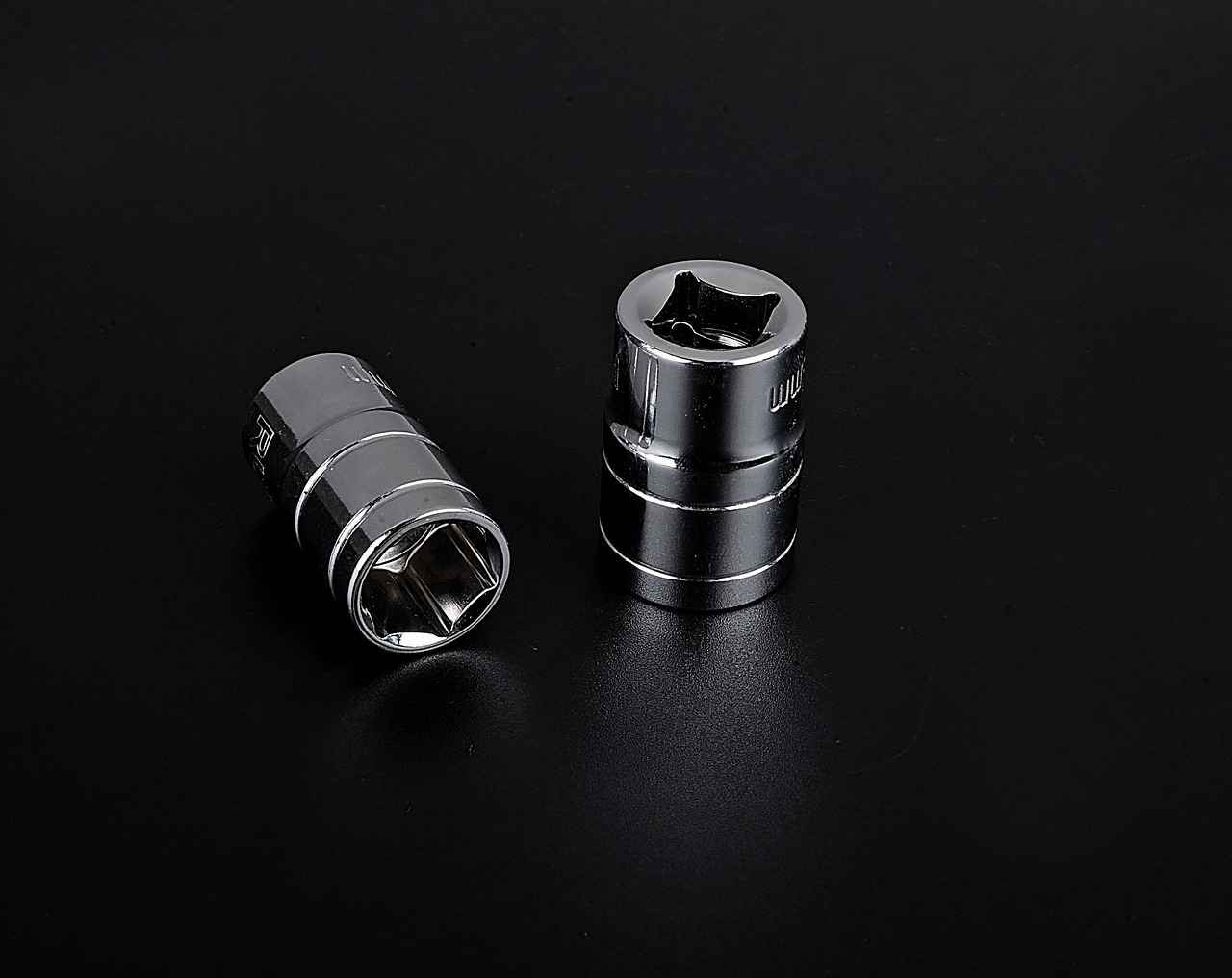Handling gasoline can be a necessary task, but it often leaves behind an unpleasant odor on your hands. This article explores practical and effective methods to eliminate the unpleasant smell of gasoline, ensuring a fresh and clean experience after handling fuel.
The strong odor of gasoline is due to its complex chemical composition, which includes volatile organic compounds (VOCs). These compounds easily evaporate and cling to surfaces, including your skin, making them difficult to wash away. Understanding this can help in choosing the right methods to remove the smell effectively.
Many household items can neutralize the smell of gasoline on your hands. Here are some of the most effective:
- Baking Soda: A natural deodorizer that absorbs odors.
- Vinegar: Its acidic properties help neutralize strong smells.
- Lemon Juice: A natural cleanser with a refreshing scent.
Baking soda is a powerful odor absorber. To use it:
1. Mix baking soda with a small amount of water to create a paste.2. Rub the paste on your hands, focusing on areas with the strongest odor.3. Rinse thoroughly with water.
This method not only removes the smell but also exfoliates your skin, leaving it feeling fresh.
Vinegar is well-known for its ability to neutralize odors. To use vinegar:
1. Pour a small amount of vinegar into a bowl.2. Dip your hands into the vinegar or apply it directly with a cloth.3. Rinse with warm water.
This technique is particularly useful for those who dislike the smell of baking soda.
While soap and water are often the first line of defense, they may not be sufficient to completely eliminate gasoline odors. Many people wonder, Can I rely solely on soap and water? The answer is usually no. Additional methods may be necessary for best results.
Opting for a strong dish soap or industrial hand cleaner can significantly improve your chances of removing the gasoline smell effectively. Look for soaps that contain degreasers or citrus extracts, which can help break down the gasoline compounds.
For those who frequently handle gasoline, specialized hand cleaners and odor removers are available. These products are designed specifically to tackle tough smells, including gasoline.
- Industrial Hand Cleaners: Formulated to cut through grease and odors.
- Odor Eliminators: Products that neutralize smells rather than just masking them.
Taking preventive measures can significantly reduce the chances of gasoline odor lingering on your hands. Consider the following:
- Wearing Gloves: Use disposable or reusable gloves when working with gasoline to create a barrier.
- Proper Cleaning Techniques: Wash your hands immediately after handling gasoline to minimize odor retention.
By following these methods and tips, you can effectively remove gasoline smell from your hands and keep them fresh and clean. Whether you choose household remedies or specialized products, maintaining cleanliness after handling gasoline is crucial for a pleasant experience.

Why Does Gasoline Leave a Strong Odor on Skin?
Understanding the lingering odor of gasoline on your skin requires delving into its chemical composition. Gasoline is primarily composed of hydrocarbons, which are organic compounds made up of hydrogen and carbon atoms. The specific blend of these hydrocarbons varies depending on the source and refining process. This variability contributes to the distinct and often overwhelming smell that gasoline emits.
When gasoline comes into contact with your skin, its volatile organic compounds (VOCs) quickly evaporate into the air. However, some of these compounds do not evaporate entirely and instead adhere to the skin. This adherence is due to the hydrophobic nature of hydrocarbons, which do not mix well with water. As a result, traditional washing methods using only soap and water may not be sufficient to remove the odor completely.
Moreover, the strong scent of gasoline is not merely a nuisance; it can also be a health concern. Prolonged exposure to gasoline vapors can lead to headaches, dizziness, and even more severe health issues. Therefore, understanding why gasoline clings to your skin is essential for both hygiene and health reasons.
Another factor that contributes to the strong odor is the presence of additives in gasoline. These additives, which are used to enhance performance and reduce engine knock, can also intensify the smell. When you handle gasoline, these chemicals can transfer to your skin, making the odor even more persistent and challenging to eliminate.
Additionally, the temperature and humidity of the environment can affect how gasoline interacts with your skin. In warmer conditions, the evaporation rate of gasoline increases, potentially intensifying the smell. Conversely, in cooler, humid conditions, the odor may linger longer due to reduced evaporation rates.
Understanding these factors can help you devise effective strategies for removing the gasoline smell from your hands. By utilizing specific cleaning agents and techniques, you can effectively neutralize the odor and maintain better hygiene after handling gasoline.
In summary, the strong odor of gasoline on your skin is a result of its complex chemical makeup, the presence of volatile compounds, and environmental factors. Recognizing these elements is crucial for implementing effective cleaning methods and ensuring your skin remains free from the unpleasant smell.

What Are the Best Household Remedies to Remove Gas Smell?
When it comes to handling gasoline, the lingering smell can be quite bothersome. Fortunately, there are several effective household remedies that can help eliminate the odor from your hands quickly and conveniently. This article will explore these remedies, ensuring you can enjoy a fresh scent after dealing with fuel.
- Baking Soda: This common kitchen item is renowned for its odor-absorbing properties. When mixed with water to form a paste, it can effectively scrub away the gasoline smell. Simply apply the paste to your hands, rub gently, and rinse thoroughly.
- Vinegar: The acidic nature of vinegar makes it a powerful tool against stubborn odors. You can use it as a rinse after washing your hands with soap. The vinegar will neutralize the gasoline scent, leaving your hands smelling fresh.
- Lemon Juice: Known for its natural antibacterial properties, lemon juice is also an excellent deodorizer. Squeeze fresh lemon juice onto your hands, rub it in, and rinse with water to help remove the gasoline smell.
- Toothpaste: Surprisingly, toothpaste can also help eliminate gasoline odors. Apply a small amount to your hands, scrub, and rinse. The minty scent can mask the gasoline smell effectively.
- Baby Oil: Applying baby oil to your hands can help lift the gasoline residue. Rub the oil into your skin and then wash with soap and water for a fresh finish.
The effectiveness of these household items lies in their chemical properties. For instance, baking soda is a base that neutralizes acids, while vinegar is an acid that can effectively counteract the alkaline compounds found in gasoline. Lemon juice not only neutralizes odors but also leaves a pleasant scent. Each item interacts with the gasoline molecules, breaking them down and allowing for easier removal.
While these remedies are generally safe, it is essential to take a few precautions:
- Always test a small area of your skin with any new substance to ensure there is no allergic reaction.
- When using vinegar or lemon juice, be cautious if you have cuts or sensitive skin, as the acidity may cause irritation.
- Thoroughly rinse your hands after using any of these remedies to avoid any residue that could cause further odors.
Many people rely on soap and water as the first line of defense against gasoline odors. However, while they can remove some surface residue, they may not be sufficient for complete odor elimination. For best results, it is advisable to follow up with one of the aforementioned household remedies.
In summary, dealing with gasoline odors on your hands doesn’t have to be a hassle. By utilizing common household items like baking soda, vinegar, and lemon juice, you can effectively neutralize the smell and restore freshness to your skin. Always remember to follow proper cleaning techniques and take necessary precautions to ensure a safe and effective cleanup.
Baking Soda: A Natural Deodorizer
Baking soda, scientifically known as sodium bicarbonate, is a versatile household item recognized for its remarkable odor-absorbing capabilities. When it comes to eliminating the unpleasant smell of gasoline from your hands, baking soda stands out as a natural deodorizer. Its unique properties allow it to effectively neutralize odors, making it a go-to solution for many.
The effectiveness of baking soda in combating odors lies in its chemical composition. As a mild alkaline compound, it interacts with acidic substances, such as the volatile compounds found in gasoline. This interaction allows baking soda to absorb and neutralize the odor, rather than merely masking it. This process is particularly beneficial when dealing with strong smells that can linger on the skin.
To harness the power of baking soda, follow these simple steps:
- Mixing: Combine a few tablespoons of baking soda with a small amount of water to create a thick paste.
- Application: Apply the paste directly to your hands, focusing on areas where the gasoline smell is strongest.
- Scrubbing: Gently scrub your hands for about 30 seconds. The abrasive nature of the baking soda helps lift the odor from your skin.
- Rinsing: Rinse your hands thoroughly with warm water to remove the paste and any remaining gasoline residues.
This method not only removes the odor but also leaves your hands feeling clean and refreshed.
Baking soda’s versatility extends beyond just deodorizing gasoline. It can also be used for various cleaning tasks around the home:
- Deodorizing Refrigerators: Place an open box of baking soda in your fridge to absorb unwanted odors.
- Cleaning Surfaces: Use it as a gentle abrasive cleaner for kitchen counters, sinks, and stovetops.
- Freshening Carpets: Sprinkle baking soda on carpets, let it sit for a while, and then vacuum to remove odors.
These applications further demonstrate baking soda’s role as a multi-functional cleaning agent.
Yes! Combining baking soda with other household items can enhance its effectiveness in removing odors. For instance:
- Vinegar: Mixing baking soda with vinegar creates a powerful cleaning solution that can tackle tough odors.
- Lemon Juice: The acidity of lemon juice complements baking soda’s properties, adding a fresh scent while deodorizing.
These combinations can be particularly useful for those who prefer natural cleaning solutions.
While baking soda is generally safe for most skin types, it is always wise to conduct a patch test before widespread application, especially for individuals with sensitive skin. If any irritation occurs, discontinue use immediately.
In summary, baking soda is an effective, natural solution for eliminating gasoline odors from your hands. Its ability to absorb and neutralize unpleasant smells makes it an invaluable addition to your cleaning arsenal. Whether used alone or in combination with other ingredients, baking soda can help restore freshness to your skin after handling fuel.
How to Use Baking Soda for Best Results
When it comes to removing the unpleasant smell of gasoline from your hands, baking soda stands out as one of the most effective and natural solutions available. This common household item not only absorbs odors but also acts as a gentle abrasive, making it perfect for scrubbing away stubborn gasoline residue. Below, we will explore how to use baking soda for optimal results in eliminating gasoline odors from your skin.
To create a potent scrub, mix baking soda with a small amount of water until a thick paste forms. This mixture should have a consistency similar to toothpaste. The baking soda works to absorb the gasoline smell, while the water helps to lift the residue off your skin.
- Step 1: Begin by washing your hands with soap and water to remove any excess gasoline. This initial wash prepares your skin for the baking soda treatment.
- Step 2: Take a generous amount of the baking soda paste and apply it to the areas of your hands that smell like gasoline. Make sure to cover all affected areas thoroughly.
- Step 3: Gently scrub your hands using circular motions. The mild abrasiveness of the baking soda will help lift the odor-causing particles from your skin.
- Step 4: Allow the paste to sit on your skin for a few minutes. This gives the baking soda time to absorb the odors effectively.
- Step 5: Rinse your hands thoroughly under running water. Ensure that all traces of the paste are washed away.
Baking soda’s natural properties make it a safe and effective option for deodorizing your skin. Its alkaline nature neutralizes acidic odors, while its fine granules provide a gentle scrubbing action without causing irritation. Unlike harsh chemicals, baking soda is non-toxic and environmentally friendly, making it a preferred choice for many.
Beyond removing gasoline odors, baking soda can be used for a variety of cleaning purposes:
- Deodorizing Refrigerators: Place an open box of baking soda in your fridge to absorb unwanted smells.
- Cleaning Surfaces: Create a paste with water to scrub countertops and sinks.
- Freshening Carpets: Sprinkle baking soda on carpets, let it sit for a while, and then vacuum for a fresh scent.
While baking soda is generally safe for most people, it’s important to consider the following:
- Always do a patch test if you have sensitive skin to ensure no adverse reactions occur.
- Avoid using baking soda on broken or irritated skin, as it may cause discomfort.
In summary, using baking soda to remove gasoline odors from your hands is a simple, effective, and safe method. By following the steps outlined above, you can enjoy fresh-smelling hands without the lingering scent of gasoline. Keep baking soda handy for not only this purpose but also for a variety of other cleaning tasks around your home.
Alternative Uses of Baking Soda in Cleaning
Baking soda is not just a powerful tool for removing unpleasant odors like gasoline; it is also a versatile cleaning agent that can be employed in various household tasks. Its unique properties make it a staple in many cleaning routines, providing effective solutions for everyday challenges. Here, we will explore several alternative uses of baking soda in cleaning, showcasing its multifaceted benefits.
The effectiveness of baking soda stems from its mild abrasive nature and its ability to neutralize acids. This makes it suitable for a wide range of cleaning applications, from deodorizing to stain removal. Additionally, it is non-toxic and safe to use around children and pets, making it an ideal choice for families.
Baking soda is a fantastic deodorizer for carpets and upholstery. Simply sprinkle a generous amount of baking soda over the surface, let it sit for at least 15 minutes (or overnight for tougher odors), and then vacuum it up. This method effectively absorbs unwanted smells, leaving your home smelling fresh.
To maintain a clean and odor-free refrigerator, place an open box of baking soda inside. This will help absorb odors and keep your fridge smelling fresh. For a more thorough clean, create a paste with baking soda and water, then use it to scrub shelves and surfaces.
Baking soda can also be used to unclog drains. Pour half a cup of baking soda down the drain, followed by half a cup of vinegar. Allow the mixture to fizz for a few minutes, then flush with hot water. This natural remedy can help break down grease and grime, promoting better drainage.
For tough stains and grease in ovens or on stovetops, make a paste using baking soda and water. Apply the paste to the stained areas and let it sit for several hours or overnight. Wipe away the residue with a damp cloth for a sparkling clean surface.
Add half a cup of baking soda to your laundry detergent to boost its cleaning power. This will help whiten whites and deodorize your clothes, leaving them fresh and clean. It is especially effective for removing stubborn stains and odors.
Baking soda is excellent for restoring the shine to tarnished silverware. Make a paste with baking soda and water, apply it to the silver, and gently rub with a soft cloth. Rinse thoroughly and dry for sparkling results.
In the bathroom, baking soda can be used to clean sinks, tubs, and tiles. Sprinkle baking soda on surfaces, scrub with a damp sponge, and rinse for a clean and fresh-smelling bathroom. It can also help eliminate soap scum and hard water stains.
In summary, baking soda is an incredibly versatile cleaning agent that can tackle a variety of household cleaning challenges. From deodorizing carpets to unclogging drains, its uses are numerous and effective. By incorporating baking soda into your cleaning routine, you can achieve a cleaner, fresher home while also benefiting from its non-toxic properties.
Vinegar: An Effective Solution Against Odors
When it comes to removing stubborn odors from your hands, vinegar stands out as a powerful and natural solution. Its acidic properties not only help to neutralize strong smells but also make it a versatile ingredient in various cleaning applications. In this section, we will delve deeper into how vinegar can effectively combat the unpleasant smell of gasoline and other strong odors.
The effectiveness of vinegar in odor removal can be attributed to its acetic acid content. This acid works to break down the chemical compounds responsible for strong smells, such as those found in gasoline. When used as a rinse or scrub, vinegar can penetrate the skin’s surface, effectively lifting and neutralizing the odor.
- Vinegar Rinse: Combine equal parts of vinegar and water in a bowl. Soak your hands in this solution for a few minutes, then rinse with warm water.
- Vinegar Scrub: Mix vinegar with baking soda to create a paste. Apply this mixture to your hands, scrubbing gently to lift the gasoline smell. Rinse thoroughly afterward.
- Vinegar Spray: Fill a spray bottle with vinegar and lightly mist your hands. Allow it to sit for a few minutes before rinsing off. This method is particularly useful for quick deodorizing.
In addition to its odor-neutralizing properties, vinegar offers several other benefits:
- Antimicrobial Properties: Vinegar has natural antimicrobial properties, making it a great option for sanitizing your hands after handling gasoline.
- Eco-Friendly: Unlike many commercial cleaners, vinegar is non-toxic and environmentally friendly, making it safe for use around children and pets.
- Cost-Effective: Vinegar is an inexpensive household item that can be used for various cleaning tasks, making it a valuable addition to your cleaning supplies.
Absolutely! Vinegar is not only effective against gasoline smells but can also tackle other strong odors such as:
- Onion and garlic smells
- Fish odors
- Smoke and burnt food smells
Simply apply the same methods mentioned above to neutralize these odors effectively.
While vinegar is generally safe, there are a few precautions to keep in mind:
- Skin Sensitivity: Some individuals may have sensitive skin that reacts to vinegar. If you experience irritation, discontinue use.
- Strong Smells: Vinegar has a strong smell of its own, which may not be pleasant for everyone. Ensure proper ventilation when using vinegar for cleaning.
In summary, vinegar serves as an effective and natural method for removing gasoline odors from your hands. Its ability to neutralize strong smells, combined with its additional benefits, makes it a must-have in your cleaning arsenal. By incorporating vinegar into your cleaning routine, you can ensure a fresher and cleaner experience after handling fuel.

Can Soap and Water Alone Remove Gas Smell?
When it comes to removing the strong and persistent smell of gasoline from your hands, you might be tempted to rely solely on soap and water. While these are often the first line of defense for many types of odors, they may not be sufficient to completely eliminate the gasoline scent. This article delves into why gasoline leaves a lingering odor and explores additional methods for effective removal.
Gasoline is a complex mixture of hydrocarbons, which are organic compounds that can easily cling to skin. The chemical composition of gasoline makes it particularly challenging to wash away. Soap works by breaking down oils and dirt, but when it comes to gasoline, the process may require more than just a simple wash.
- Persistence of Odor: Gasoline odors can linger even after washing, as the chemicals can penetrate the skin.
- Skin Absorption: The porous nature of skin can allow gasoline to be absorbed, making it harder to remove.
- Type of Soap: Not all soaps are created equal; some may be less effective against strong odors.
To enhance your cleaning efforts, consider incorporating the following methods:
Baking soda is a natural deodorizer that can be effective in neutralizing gasoline odors. Mix it with a small amount of water to create a paste, then scrub your hands thoroughly. The gritty texture helps lift the odor while the baking soda absorbs it.
Vinegar is another household item that can combat odors effectively. Its acidic properties help neutralize the alkaline compounds in gasoline. After washing your hands with soap, rinse them with a solution of vinegar and water for a fresh scent.
If home remedies are not yielding satisfactory results, consider using specialized hand cleaners designed for tough odors. These products often contain ingredients specifically formulated to break down gasoline compounds.
When selecting soap to remove gasoline odors, opt for a strong dish soap or an industrial hand cleaner. These products often contain more potent ingredients that can effectively tackle stubborn smells.
After washing your hands, it’s crucial to rinse thoroughly. Any remaining soap or gasoline residue can continue to emit odors, undermining your cleaning efforts. Make sure to rinse under running water for at least 30 seconds to ensure all residues are washed away.
To minimize the chances of gasoline smell lingering on your hands, consider taking preventive measures:
- Wear Gloves: Using disposable or reusable gloves while handling gasoline can create a barrier that protects your skin from direct contact.
- Immediate Cleaning: Clean your hands immediately after handling gasoline to prevent the odor from settling in.
In summary, while soap and water are important for initial cleaning, they may not be enough to fully eliminate gasoline odors. By employing additional methods such as baking soda, vinegar, and specialized hand cleaners, you can effectively rid your hands of that unpleasant gasoline smell. Remember, thorough rinsing and preventive measures can also play a vital role in maintaining fresh-smelling hands.
Choosing the Right Soap for Odor Removal
When it comes to removing stubborn gasoline odors from your hands, choosing the right soap can make a world of difference. Many people underestimate the power of a good soap, but the right formula can effectively break down the compounds in gasoline that cling to your skin. In this section, we will explore the best options for soap and why they are essential in your odor removal strategy.
Regular soap, while useful for general cleaning, may not have the necessary properties to tackle the complex chemicals found in gasoline. Gasoline contains hydrocarbons that can resist simple washing techniques. Therefore, a more robust solution is required to effectively eliminate these odors.
Strong dish soaps are formulated to cut through grease and grime, making them particularly effective against gasoline residues. These soaps often contain surfactants that help break down oily substances, allowing for better removal of odors. Additionally, their concentrated formulations mean that a small amount goes a long way in providing effective cleaning.
If you frequently find yourself dealing with gasoline or other tough odors, industrial hand cleaners are worth considering. These products are designed specifically for heavy-duty cleaning and often contain specialized ingredients that target and neutralize strong smells. Many industrial cleaners also include moisturizers to protect your skin after use.
Using soap effectively involves more than just a quick wash. Here are some tips:
- Apply Generously: Use a generous amount of soap, ensuring it covers all areas of your hands.
- Scrub Thoroughly: Spend at least 20-30 seconds scrubbing your hands, paying special attention to areas between fingers and under nails.
- Rinse Well: Rinse your hands under running water to remove all soap and residue. A thorough rinse is crucial to eliminate lingering odors.
Another factor to consider when choosing soap is its pH level. Soaps that are too alkaline can irritate the skin, especially when used frequently. Look for soaps that are pH-balanced to maintain skin health while effectively removing odors.
If you have sensitive skin, consider using natural soaps made from plant-based ingredients. These soaps can be effective against odors while being gentler on your skin. Look for products that contain essential oils, which not only help mask odors but also provide a pleasant fragrance.
For the best results, consider combining soap with other odor removal techniques. For example, using baking soda as a scrub before applying soap can enhance its effectiveness. Baking soda acts as a natural deodorizer, helping to absorb and neutralize odors before you wash your hands.
In conclusion, choosing the right soap is crucial for effectively removing gasoline odors from your hands. Whether you opt for a strong dish soap or an industrial hand cleaner, ensure you follow proper washing techniques to maximize odor removal. By incorporating these practices into your routine, you can keep your hands fresh and clean after handling gasoline.
Importance of Thorough Rinsing
When it comes to removing the stubborn smell of gasoline from your hands, thorough rinsing plays an indispensable role. Many people underestimate the impact of this crucial step, believing that a simple wash with soap and water is sufficient. However, the reality is that any lingering soap or gasoline residue can continue to emit unpleasant odors long after you think you’ve cleaned your hands.
Gasoline contains a variety of volatile organic compounds (VOCs) that cling to your skin, making it essential to ensure that both the soap and any remaining traces of gasoline are completely washed away. If you neglect to rinse your hands thoroughly, the residual soap can interact with the gasoline compounds, potentially intensifying the odor rather than eliminating it.
To effectively rinse your hands, follow these steps:
- Use Warm Water: Begin by rinsing your hands under warm water. The heat helps to dissolve the oils and compounds found in gasoline, making them easier to wash away.
- Apply Soap Generously: Use a strong dish soap or industrial hand cleaner. These types of soaps are formulated to cut through grease and oil effectively, providing a more thorough clean.
- Scrub Vigorously: Spend at least 20 seconds scrubbing your hands, paying attention to areas between your fingers, under your nails, and around your wrists where gasoline residue may linger.
- Rinse Again: After scrubbing, rinse your hands thoroughly under warm running water. Ensure that all soap suds are washed away, as any remaining soap can trap odors.
- Final Rinse with Cool Water: For an added measure, finish with a quick rinse under cool water. This can help close the pores of your skin, further preventing odors from settling in.
In addition to these rinsing techniques, consider using natural remedies such as baking soda or vinegar as a follow-up treatment. These household items have proven effective in neutralizing odors. For example, you can create a paste of baking soda and water, apply it to your hands, and scrub before rinsing again. Vinegar can also be used as a final rinse to help eliminate any remaining gasoline smell.
It’s essential to recognize that the extends beyond just removing odors. It also plays a critical role in maintaining skin health. Prolonged exposure to gasoline and harsh soaps can irritate your skin, leading to dryness or allergic reactions. By ensuring you rinse thoroughly, you not only eliminate odors but also protect your skin from potential damage.
In conclusion, never underestimate the power of a thorough rinse. It is a vital step in the process of removing gasoline smell from your hands and ensuring that you maintain healthy skin. Remember that effective cleaning goes beyond just the initial wash; it requires diligence and attention to detail to achieve the best results.

Are There Specialized Products for Removing Gas Smell?
When it comes to tackling the stubborn and unpleasant smell of gasoline on your hands, specialized hand cleaners and odor removers can be a game changer. These products are specifically formulated to combat tough odors, including gasoline, providing a reliable alternative to traditional home remedies.
Specialized products for removing gasoline odors are designed with potent ingredients that target the chemical compounds in gasoline, effectively breaking them down and neutralizing their smell. Unlike regular soaps, these cleaners often contain solvents and degreasers that enhance their ability to remove stubborn residues.
- Fast Action: Many of these products work quickly, allowing you to eliminate odors in a matter of seconds.
- Deep Cleaning: They penetrate deeply into the skin, removing not just the smell but also any oil or residue left behind.
- Skin-Friendly Formulas: Many specialized cleaners are formulated to be gentle on the skin, containing moisturizing agents that prevent dryness.
Several products have gained popularity for their effectiveness in removing gasoline odors. Here are a few top recommendations:
- Gojo Natural Orange Pumice Hand Cleaner: This cleaner utilizes natural citrus oils to cut through tough odors while providing gentle exfoliation.
- Fast Orange Hand Cleaner: Known for its powerful degreasing capabilities, this product is perfect for heavy-duty cleaning.
- Uni-Solve Adhesive Remover: This solvent-based cleaner is effective for removing sticky residues and strong odors, including gasoline.
When selecting a specialized hand cleaner for removing gasoline smell, consider the following factors:
- Skin Sensitivity: If you have sensitive skin, look for products that are hypoallergenic and free from harsh chemicals.
- Effectiveness: Read reviews and ratings to determine how well a product works for others who have faced similar challenges.
- Ease of Use: Choose products that are easy to apply and rinse off, ensuring a hassle-free cleaning experience.
While specialized cleaners are effective, it’s essential to follow some precautions:
- Read the Instructions: Always follow the manufacturer’s instructions for optimal results and safety.
- Avoid Inhalation: Use these products in well-ventilated areas to prevent inhaling strong fumes.
- Test for Allergies: If you have sensitive skin, conduct a patch test before full application.
In conclusion, specialized hand cleaners and odor removers provide an efficient and effective solution for eliminating the smell of gasoline from your hands. With various options available on the market, choosing the right product tailored to your needs can ensure a fresh and clean experience after handling fuel.
Top Recommended Products for Gas Smell Removal
When it comes to removing the stubborn smell of gasoline from your hands, there are a variety of specialized products available on the market. These products are designed specifically to tackle tough odors, including gasoline, providing effective solutions for those who frequently handle fuel or work in environments where gasoline exposure is common. In this section, we will explore some of the top recommended products for gas smell removal, ensuring you have the best options at your disposal.
Industrial hand cleaners are formulated to remove tough grime and odors from your skin. They often contain powerful solvents and surfactants that break down oily residues, making them particularly effective against gasoline smells. Here are some popular options:
- Gojo Scrubbing Towels: These pre-moistened towels are infused with a powerful cleaning solution that removes grease, oil, and odors from hands without the need for water.
- Fast Orange Hand Cleaner: This citrus-based cleaner is known for its ability to cut through tough odors and dirt, making it a favorite among mechanics and outdoor workers.
- Permatex Hand Cleaner: A heavy-duty option that not only cleans but also moisturizes the skin, helping to combat the drying effects of frequent gasoline exposure.
Odor eliminators are products specifically designed to neutralize and eliminate unpleasant smells rather than just masking them. They can be particularly useful for removing gasoline odors from skin. Some highly recommended odor eliminators include:
- Febreze Fabric Refresher: While typically used on fabrics, this product can effectively neutralize odors on skin when sprayed lightly.
- Nature’s Miracle Odor Destroyer: This enzymatic spray works to break down odor molecules, making it effective for tough smells like gasoline.
- Simple Green Pro HD Cleaner: This multi-purpose cleaner not only removes dirt but also effectively eliminates odors, including gasoline.
When selecting a product to remove gasoline odors, consider the following factors:
- Skin Sensitivity: Choose products that are gentle on the skin if you have sensitive skin or allergies.
- Effectiveness: Look for products with positive reviews specifically mentioning their efficacy against gasoline odors.
- Ease of Use: Opt for products that are convenient to use, such as wipes or sprays, which can be easily applied on-the-go.
If you prefer natural solutions, there are also effective alternatives to commercial products. For example, using a mixture of baking soda and water can create a paste that absorbs odors. Additionally, vinegar can be used as a rinse to neutralize the smell of gasoline.
In conclusion, whether you opt for specialized industrial hand cleaners, odor eliminators, or natural remedies, having the right product on hand can make a significant difference in effectively removing gasoline odors from your skin. Always remember to follow the instructions on the product label for the best results.
How to Choose the Right Product
Choosing the right product to remove gasoline smell from your hands is crucial for effective odor elimination. With various options available, it is essential to consider several factors to ensure you select a product that meets your specific needs.
- Skin Sensitivity: Different individuals have varying levels of skin sensitivity. It is vital to choose a product that is gentle on the skin, especially if you have a history of allergic reactions or irritation. Look for products labeled as hypoallergenic or dermatologist-tested.
- Effectiveness: The primary purpose of these products is to eliminate odors. Research and reviews can provide insights into how well a product works. Look for items that specifically mention their ability to neutralize gasoline smells.
- Ease of Use: Consider how convenient the product is to use. Some products may require multiple steps or lengthy application times, while others can be applied quickly and easily. A straightforward application process is often preferable, especially for those in a hurry.
- Ingredients: Check the ingredient list for any harsh chemicals that may not only be ineffective but also harmful to your skin. Natural or organic products can be a safer choice for both your skin and the environment.
- Price: While it’s essential to invest in a quality product, price can be a deciding factor. Compare prices and look for products that offer the best value for their effectiveness.
There are various types of products designed to combat gasoline odors:
- Industrial Hand Cleaners: These are specially formulated to remove tough odors and residues, making them an excellent choice for those who frequently handle gasoline.
- Odor Eliminators: These products are designed to neutralize a wide range of smells, including gasoline. They often contain specific ingredients that target and break down odor molecules.
- Natural Remedies: Many people prefer to use natural products like vinegar, baking soda, or lemon juice, which can be effective in neutralizing odors without harsh chemicals.
Before purchasing a product, consider conducting a patch test to ensure it doesn’t irritate your skin. Apply a small amount of the product on a less sensitive area, such as your forearm, and observe for any adverse reactions over 24 hours.
Additionally, reading customer reviews and ratings can provide valuable insights into the effectiveness and user-friendliness of the product. Look for feedback specifically related to gasoline odor removal to gauge its performance accurately.
These products can be found in various places:
- Local Hardware Stores: Often stock industrial cleaners and odor removers suitable for gasoline.
- Online Retailers: Websites like Amazon and specialty cleaning sites usually offer a wide range of options, often with user reviews.
- Supermarkets: Many grocery stores carry household cleaning supplies, including natural remedies for odor removal.
By considering these factors and exploring the available options, you can confidently choose the right product to effectively remove gasoline smells from your hands. Remember, the best product for you will depend on your specific needs and preferences.

How to Prevent Gas Smell from Sticking to Your Hands?
Handling gasoline is often necessary for various tasks, but the lingering odor it leaves on your hands can be unpleasant. Fortunately, taking preventive measures can significantly reduce the chances of gasoline smell sticking to your skin, ensuring a fresher experience. Here are some effective strategies to keep your hands smelling clean.
The smell of gasoline is not just bothersome; it can also be a sign of harmful chemicals that may irritate your skin. Preventing the odor from clinging to your hands is essential for both comfort and health. By employing effective measures, you can avoid the hassle of trying to remove the smell later.
- Wear Protective Gloves: Using disposable or reusable gloves can create a barrier between your skin and the gasoline, effectively preventing the smell from transferring to your hands.
- Use a Funnel: When pouring gasoline, a funnel can help minimize spills, reducing the chances of the fuel coming into contact with your skin.
- Keep a Clean Workspace: Ensuring that the area where you handle gasoline is clean can help prevent accidental contact with fuel spills.
Immediate cleaning is crucial to minimize odor retention. Here are some effective techniques:
- Use Soap and Water: Wash your hands thoroughly with soap and warm water immediately after handling gasoline. This is a basic yet effective first step.
- Apply Baking Soda Paste: Mix baking soda with a small amount of water to create a paste. Scrub your hands with this mixture to absorb and neutralize the gasoline smell.
- Rinse with Vinegar: Vinegar can neutralize odors. Use it as a rinse after washing your hands with soap to eliminate any remaining gasoline scent.
Yes, there are specialized hand cleaners designed to combat tough odors, including gasoline. Look for products that are:
- Industrial Strength: These cleaners are formulated to tackle strong smells and often contain ingredients that break down the compounds in gasoline.
- Skin-Friendly: Ensure that the product is safe for your skin type, especially if you have sensitive skin.
Even after taking preventive measures, it’s essential to maintain freshness throughout the day. Here are some tips:
- Use Moisturizing Hand Sanitizer: A hand sanitizer with moisturizing properties can help keep your hands clean and fresh without drying them out.
- Carry Wipes: Keeping a pack of wipes handy can allow for quick cleanups when you’re on the go, ensuring your hands stay free from gasoline odors.
By implementing these strategies, you can effectively prevent gasoline smell from sticking to your hands, making your experience more pleasant and reducing the need for extensive cleaning afterward.
Wearing Gloves While Handling Gasoline
When handling gasoline, safety and cleanliness should be your top priorities. One effective method to ensure that your hands remain free from the strong odor of gasoline is by wearing gloves. This simple yet effective practice can significantly reduce the chances of the gasoline smell transferring to your skin.
Gasoline contains a variety of chemicals, including hydrocarbons, which can be harsh on your skin. By wearing gloves, you create a protective barrier that not only keeps your hands clean but also protects them from potential irritation caused by direct contact with gasoline. This is particularly important for individuals with sensitive skin or pre-existing skin conditions.
- Disposable Gloves: These are often made from latex, nitrile, or vinyl. They are convenient and can be discarded after a single use, ensuring that no residual gasoline smell lingers.
- Reusable Gloves: Made from thicker materials like rubber or neoprene, these gloves can withstand multiple uses and are often more durable. However, they should be cleaned thoroughly after each use to prevent odors from accumulating.
To maximize the effectiveness of gloves while handling gasoline, consider the following steps:
- Choose the Right Size: Ensure that the gloves fit snugly but comfortably. Gloves that are too loose can slip off, while tight gloves may restrict movement.
- Inspect for Damage: Before using any gloves, check for tears or punctures. Damaged gloves should not be used as they can compromise your protection.
- Remove Carefully: After handling gasoline, remove the gloves carefully to avoid contact with the outer surface, which may be contaminated. Dispose of disposable gloves properly or wash reusable gloves thoroughly.
While wearing gloves is a great first step, there are additional practices you can adopt to further minimize gasoline odor:
- Wash Hands Immediately: After removing gloves, wash your hands with soap and water to eliminate any lingering odors.
- Use Odor Neutralizers: Applying a mixture of baking soda and water or vinegar can help neutralize any remaining gasoline smell.
- Store Gasoline Properly: Ensure that gasoline is stored in well-sealed containers to prevent spills and leaks.
Wearing gloves while handling gasoline is a simple yet effective way to protect your skin and prevent the unpleasant smell of gasoline from lingering on your hands. By choosing the right type of gloves and following proper usage techniques, you can ensure a cleaner and safer experience when working with fuel. Additionally, adopting complementary practices such as immediate hand washing and using odor neutralizers can further enhance your cleanliness and comfort.
Proper Cleaning Techniques After Handling Gasoline
Handling gasoline is a common task for many individuals, whether for filling up a vehicle or using it for various DIY projects. However, the unpleasant smell that clings to your hands afterward can be quite bothersome. To ensure that your hands remain fresh and clean, it is essential to adopt proper cleaning techniques immediately after handling gasoline. This article will guide you through effective methods to eliminate gasoline odor and keep your hands smelling fresh.
Gasoline contains volatile organic compounds that can linger on your skin, making it crucial to clean your hands as soon as possible. Delaying the cleaning process can lead to the odor becoming more entrenched, making it more challenging to remove. By utilizing the right techniques promptly, you can significantly reduce odor retention.
- Step 1: Rinse with Water
- Step 2: Use a Strong Soap
- Step 3: Scrub Thoroughly
- Step 4: Rinse Again
- Step 5: Dry and Moisturize
Start by rinsing your hands under warm running water. This initial rinse helps to remove any gasoline residue from your skin.
Opt for a heavy-duty dish soap or an industrial hand cleaner that is specifically designed to cut through grease and odors. Apply a generous amount to your hands.
Use a scrubbing motion to ensure that the soap penetrates all areas of your hands, including between your fingers and under your nails. This is where gasoline can easily hide.
Rinse your hands thoroughly under warm water to remove all soap and any lingering gasoline residue. Make sure no soap is left, as it can trap odors.
After drying your hands, apply a moisturizer. Gasoline can dry out your skin, and moisturizing helps to restore its natural barrier.
In addition to the basic cleaning steps, consider these additional tips for effective odor removal:
- Baking Soda Paste: Mix baking soda with a small amount of water to create a paste. Scrub this paste onto your hands to neutralize odors effectively.
- Vinegar Rinse: Rinsing your hands with vinegar can help cut through the gasoline smell due to its acidic properties.
- Essential Oils: After cleaning, applying a few drops of essential oil, such as lemon or lavender, can help mask any remaining odor.
To minimize the chances of gasoline smell sticking to your hands in the future, consider the following preventive measures:
- Wear Gloves: Using disposable or reusable gloves while handling gasoline can create a barrier between your skin and the fuel.
- Keep Cleaning Supplies Handy: Always have soap, baking soda, or vinegar accessible in case you need to clean your hands quickly after handling gasoline.
By adopting these proper cleaning techniques and preventive measures, you can ensure that your hands remain fresh and clean after handling gasoline. Quick action and the right products are key to effectively removing the unpleasant gasoline odor.
Frequently Asked Questions
- How long does the gasoline smell last on my hands?
The duration of the gasoline smell on your hands can vary based on the amount of exposure and the cleaning methods used. Generally, if not properly cleaned, the smell can linger for hours or even days!
- Can I use regular soap to remove gasoline odor?
While regular soap is a good start, it may not be enough to completely eliminate the gasoline smell. Using a strong dish soap or a specialized cleaner is recommended for best results.
- Is it safe to use vinegar on my skin?
Yes, vinegar is generally safe for skin use in small amounts. Its acidic properties help neutralize odors, but if you have sensitive skin, it’s wise to do a patch test first.
- What should I do if the smell persists after cleaning?
If the smell persists, try reapplying your cleaning method or consider using specialized odor removers designed for tough smells like gasoline. Sometimes, a second round of cleaning is all you need!
- Are there any preventive measures to avoid gasoline smell?
Absolutely! Wearing gloves while handling gasoline is a great way to prevent the smell from transferring to your skin. Additionally, cleaning your hands immediately after handling fuel can help minimize odor retention.




